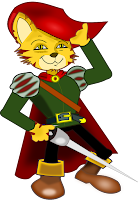Guest Post Allison Reker
 I'd like to thank Allison Reker
I'd like to thank Allison Reker I found her post very useful and I play online games with my husband and
family I can't wait to try out some of her advice.
All images are from the great photographers at Pixaby
How Video Games Can Transform Your Writing
No, I haven’t lost my mind, and I’m not a video game addict either—I am totally serious. I’ve been passionate about writing my whole life; participated in writing groups, gone to conferences, taken more classes on writing than I can remember, and even majored in writing in college. But it was through a video game that I learned to really be a story teller and develop characters that breathed a life of their own.
Roleplay Find a game where you can role-play with others. I’m not talking about your standard shoot-em-up, follow the canned story line from point A to point Z until you defeat the big boss kind of game though. I’m talking about the open-ended kind. The games that give you an interactive world full of other players, and opportunities to challenge yourself by building skills and going on quests, either of the game’s making or your own.
The games where you can engage with other storytellers and actually roleplay. As writers, we sometimes enjoy good reviews or fan mail, but we don’t typically get to experience the immediate reactions of those reading our stories. Getting to not only experience those reactions, but have readers respond back in a way that influences what you write next, teaches you a lot about what it takes to make an engaging character or story.
 Build your own narrative within the game, and connect your stories.
My own book series has its distant origins in one such game, called Ultima Online. As far as I know, its servers are still running, though I no longer play. What started out as something entertaining to do in the evenings after work, became an incredible creative outlet. It resulted in a massive collection of interconnected stories and vignettes that I and a small group of other players built upon for years.
Build your own narrative within the game, and connect your stories.
My own book series has its distant origins in one such game, called Ultima Online. As far as I know, its servers are still running, though I no longer play. What started out as something entertaining to do in the evenings after work, became an incredible creative outlet. It resulted in a massive collection of interconnected stories and vignettes that I and a small group of other players built upon for years.The interplay between world, history, and character became a wellspring for the imagination—a boundless source of ideas just waiting to be explored. Even though the game world had its own official history and storyline, following it wasn’t necessary. We made up our own history for that world, our own mythology, and tied it into our individual storylines. Everything we did in game continued to feed into the larger story, so it just kept growing.
Become your character(s) when you’re in a game. Roleplaying taught me more about character development than all of my previous writing coursework combined. Why? My characters were no longer theoretical. There was no omniscient narrator between me and their deepest thoughts and feelings. With no set plotline, and no need to balance the actions - thoughts of other characters at the same time, all I needed to focus on was being my chosen character at that moment in time.
 When I stepped into the role of Morganne, for instance, I really pulled on her boots and peered out at the world through her eyes rather than my own. I spoke, thought, felt, and reasoned like she did.
Unlike in a story or novel where I maintained control over what would happen next, I never knew what Morganne might encounter from day to day. Different situations would arise based on the actions of other players, and I would have to react, not as myself, but as Morganne. And I didn’t have days or weeks to mull the implications of those reactions, either. I had to quickly base them on what I knew of her as a person and stay true to her integrity as a character. Whatever I did, whatever I said, could not be taken back or re-written later.
When I stepped into the role of Morganne, for instance, I really pulled on her boots and peered out at the world through her eyes rather than my own. I spoke, thought, felt, and reasoned like she did.
Unlike in a story or novel where I maintained control over what would happen next, I never knew what Morganne might encounter from day to day. Different situations would arise based on the actions of other players, and I would have to react, not as myself, but as Morganne. And I didn’t have days or weeks to mull the implications of those reactions, either. I had to quickly base them on what I knew of her as a person and stay true to her integrity as a character. Whatever I did, whatever I said, could not be taken back or re-written later.With real-time roleplaying there could always be unanticipated consequences, of course. After all, I was dealing with the varied personalities of other players’ characters and their background stories. I might make new friends who would come to my defense in times of need. Or I might make new enemies, who would from then on make a point of coming after me. But every decision, every interaction became a part of who Morganne was, and got woven into her larger narrative, until thread by thread, a rich and complex character came into being.
Take the characters you love beyond the game. The game gradually changed; friends came and went, and my own life circumstances left me little time to play. The day I shut down my account, it literally felt like a part of me had died. It’s a strange thing to grieve over people that aren’t real, yet they had become real to me. What would become of those characters I had invested so many years, and so much of my inner self, into developing? Instead of shelving all of those old stories, and resigning my beloved characters to oblivion, I preserved them in the form of my first novel, and then my second, with still more to come.
Not just my characters either, but the memories of so many others that I had met and been influenced by along the way. Fifteen years later I’m still drawing from that infinite wellspring I discovered in, yes, a video game. I’ll probably still be drawing from it fifteen years from now, because I truly love my characters and the new world and storylines I’ve made for them.
Other ways video games can help your writing
I still play other video games on occasion, though I’m careful not to let them suck too much of my writing time away. Here are some other simple ways they can help.
• If you’re in a game where roleplaying is possible, this can be a great time to experiment with unusual characters or story lines—particularly those that take you out of your comfort zone. Try them in the game before making them part of your current work in progress. Let the other people you play with serve as a sounding board to bounce ideas off of. See how they react to your experimental character/storyline, and ask for feedback that will help you decide if it works or not.
• World building can be challenging. If you’re having trouble visualizing your own world, how can you make it a real place for your readers? Maybe you are trying to figure out a castle’s layout, how a certain village would look, or describe some other important location in your book. Build it in Minecraft. It’s not a roleplaying game, but in it you can build just about anything you can imagine, block by block. I’ve terraformed landscapes, made castles, medieval villages, seaside mansions, and all sorts of other things. Sometimes through the building process you realize that the vision in your head isn’t actually possible or practical, or takes up way more, or way less space than you thought.
 • Sometimes when I’m struggling with ideas or something I’m working on isn’t quite right, video games provide a much needed mental break. Ideas can still be percolating in the back of my mind while I get myself refocused, or re-energized.
So the next time you’re looking for a video game diversion, don’t feel guilty about it—make it count. Pick a game that can actually help you hone your writing skills while you play. You might get more out of it than you ever thought possible.
• Sometimes when I’m struggling with ideas or something I’m working on isn’t quite right, video games provide a much needed mental break. Ideas can still be percolating in the back of my mind while I get myself refocused, or re-energized.
So the next time you’re looking for a video game diversion, don’t feel guilty about it—make it count. Pick a game that can actually help you hone your writing skills while you play. You might get more out of it than you ever thought possible.Bio
Allison D. Reid was born in Cincinnati, Ohio. Her love for medieval fantasy was sparked by the Narnia Chronicles by C.S. Lewis, which fed both her imagination and her spiritual development. When at the age of thirteen her family moved to Germany, her passion for medieval history and legend only increased, and she found herself captivated by the ancient towns and castles of Europe. Allison returned to the United States to study art and writing at Hampshire College in Amherst, MA. She earned her B.A. under the tutelage of the well-renowned and prolific writer Andrew Salkey, a student of her other great inspiration, and the father of fantasy, J. R. R. Tolkien. After graduating from Hampshire College, Allison moved to Connecticut. There she got the opportunity to attend seminary and further explore her faith before returning to her home state of Ohio. Allison now lives in the Miami Valley area with her husband and children. She continues to work on her first published series while taking care of her family, editing for other independent writers, and managing a home business.
Learn more about Allison by visiting her website,
www.AllisonDReid.com or check out her blog.
Tune into her live interview on By the Fireplace, February 10th at 11:00 p.m. EST or catch it later on demand.









Comments
Post a Comment